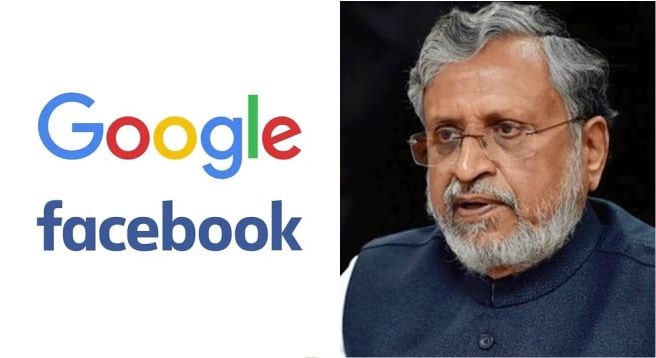Taking a cue from Australia, Indian policy-makers urged the government to enact a law to make tech giants such as Facebook and Google pay local publishers of news content.
Raising the issue through a Zero Hour mention on Wednesday in Rajya Sabha or the Upper House of Parliament BJP leader and former deputy chief minister of Bihar Sushil Kumar Modi said, “The government must make Google, Facebook and YouTube pay print and news channels for the news content they are using freely.”
The Indian government, according to a PTI report, should take a cue from the Australian parliament that passed the world’s first law last month to ensure news media businesses are fairly remunerated for the content they generate, Modi said.
“I would urge the government of India that the way they have notified Intermediary Guidelines and Digital Media Ethics Code to regulate social media and OTT platforms, they should enact a law on the pattern of Australian Code so that we can compel Google to share its revenue with traditional media,” added Modi.
Rajya Sabha Chairman and Vice President M Venkaiah Naidu remarked that the suggestion was “worth considering”.
Modi said the traditional print and news broadcast media, whose content is freely available on platforms run by the tech giants, are passing through their worst phase in recent history as advertisements have shifted to tech platforms.
“They (legacy media) are in deep financial crisis. Earlier, it was because of the pandemic and now it is because of tech giants like YouTube, Facebook and Google,” he said.
The traditional news media, Modi said, make heavy investments employing anchors, journalists and reporters who gather information, verify it and deliver credible news.
But advertisement, which is their main source of revenue, has in the past few years shifted away from them with the advent of tech giants like Google, Facebook and YouTube, he said.
“Advertising earnings are going to these tech giants (and) because of this print media, news channels are passing through a financial crisis,” Modi said, adding, “I would urge (that) we should follow a country like Australia which has taken the lead by enacting a law — News Media Bargaining Code — by which they have compelled Google to share advertisement revenue with the news media.”
Google had threatened to blackout news from its portal in Australia but ultimately surrendered, the BJP leader said. “Australia has set a precedence and now France and other European countries are making laws for advertisement revenue sharing,” Modi argued in such a law’s favour in India too.
However, Indianbroadcastingworld.com feels that in Australia big media companies have managed to strike sweet deals with the tech giants for news content and reworked ad revenue share.
Incidentally, the News Broadcasters Association (NBA), representing major TV news channels in India, had recently shot off a missive to Google India head Sanjay Gupta suggesting revenue sharing method between publsihers of news and tech companies needed a relook and review.
“News organizations make heavy investments in employing anchors, journalists and reporters to gather, verify and deliver credible information but are inadequately compensated; the largest share of advertising revenue flows disproportionately to intermediary technology platforms such as Google, YouTube, Facebook, etc.
Google plays a key role in this value chain as an intermediary and plays a part in delivering this news content to its audiences albeit without sufficiently compensating the content owners,” NBA chairman and India TV founder Rajat Sharma had stressed in the letter —- a line of thought that was echoed in Parliament yesterday by Modi.
“The present situation reflects the unfair distribution of advertising revenues and opaqueness of the advertising system, which is causing the digital news businesses to come under tremendous pressure/stress,” NBA had pointed out, adding, “Advertising revenues form the backbone of the news broadcasters. However, they are seeing their share of the advertising pie shrinking in the digital space since technology giants are taking away the major chunk, leaving news broadcasters with a nominal share.”
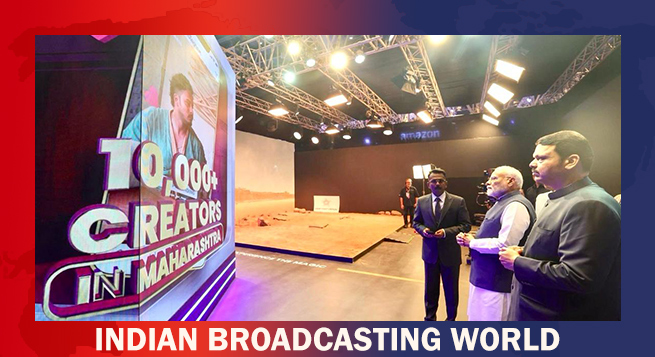 MIB to unveil M&E sector statistical handbook today at WAVES
MIB to unveil M&E sector statistical handbook today at WAVES 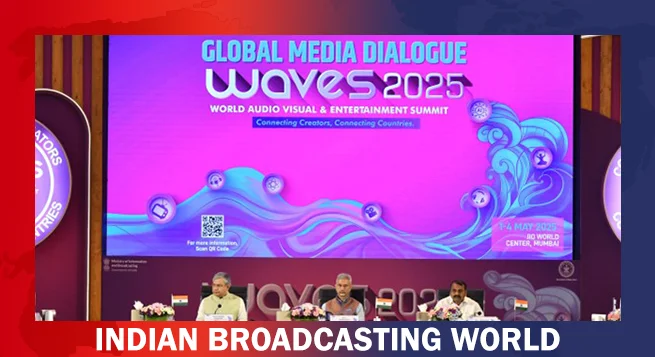 WAVES 2025: Media dialogue backs creativity, heritage & ethics in AI Era
WAVES 2025: Media dialogue backs creativity, heritage & ethics in AI Era 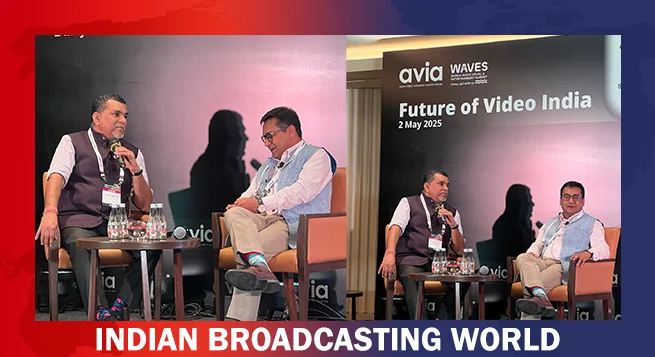 Pay TV leaders chart course for India’s linear TV in digital age
Pay TV leaders chart course for India’s linear TV in digital age 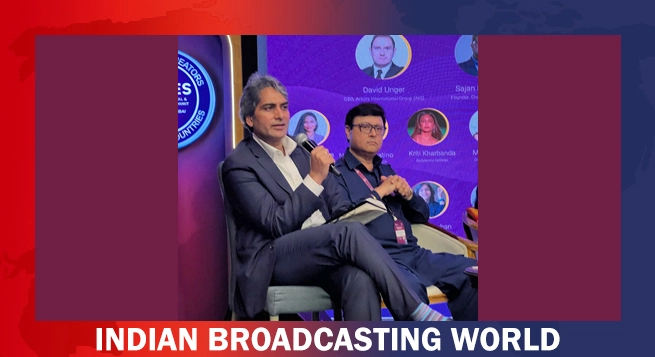 Sudhir Chaudhary announces new show for DD News, says “Good content still has a place” at WAVES 2025
Sudhir Chaudhary announces new show for DD News, says “Good content still has a place” at WAVES 2025 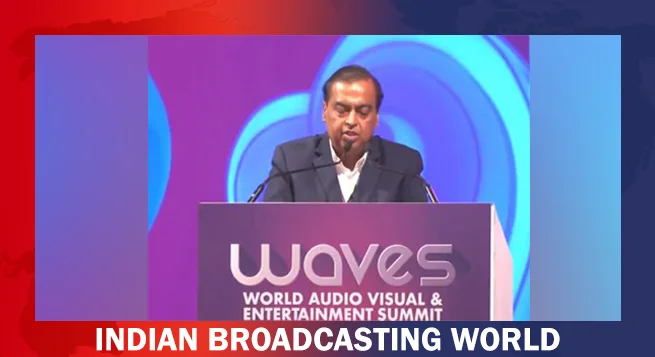 India can lead global entertainment revolution: Mukesh Ambani
India can lead global entertainment revolution: Mukesh Ambani 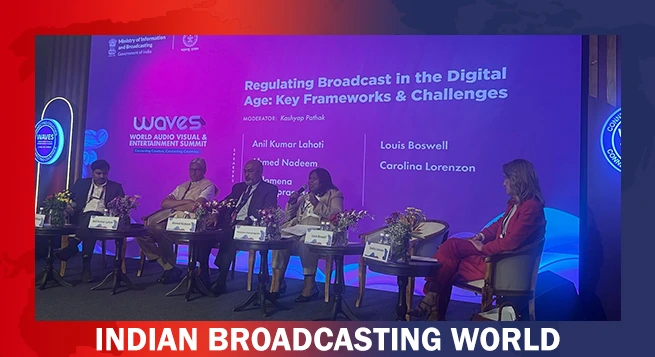 TRAI chief not in favour of separate rules for OTT, legacy b’casters
TRAI chief not in favour of separate rules for OTT, legacy b’casters 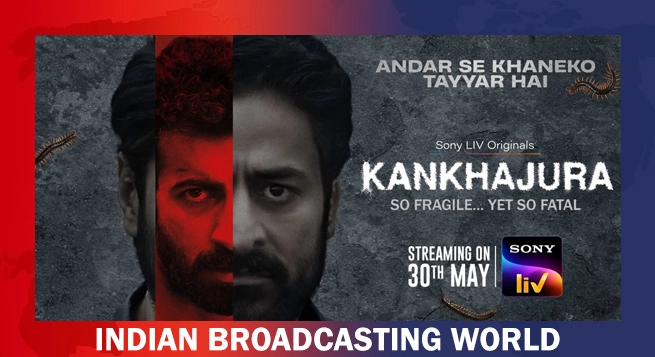 ‘KanKhajura’ start streaming on Sony LIV from May 30
‘KanKhajura’ start streaming on Sony LIV from May 30 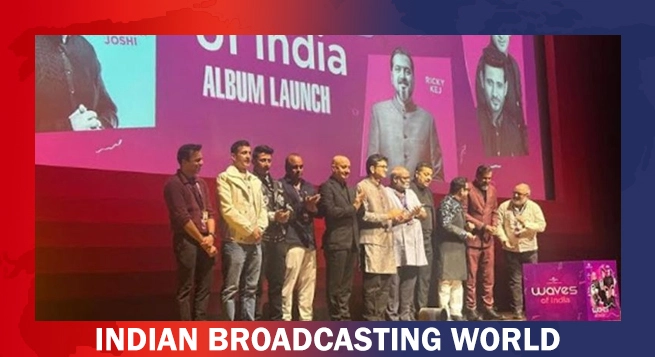 Koyal.AI debuts at WAVES 2025, set to revolutionise music videos with GenAI
Koyal.AI debuts at WAVES 2025, set to revolutionise music videos with GenAI 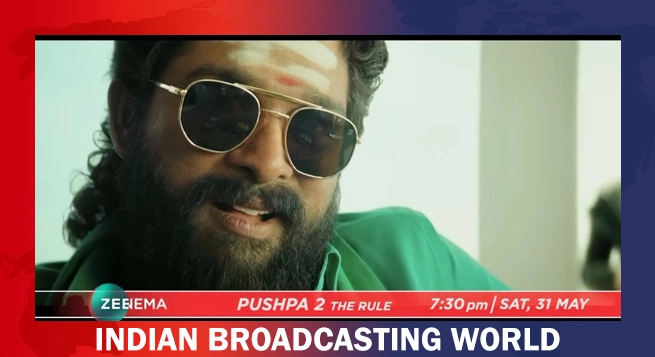 Zee Cinema to premiere ‘Pushpa 2: The Rule’ on May 31
Zee Cinema to premiere ‘Pushpa 2: The Rule’ on May 31 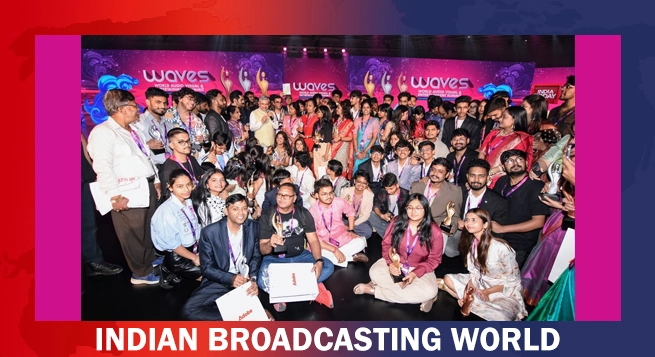 ‘Create in India Challenge’ S1 honours global talent at WAVES
‘Create in India Challenge’ S1 honours global talent at WAVES 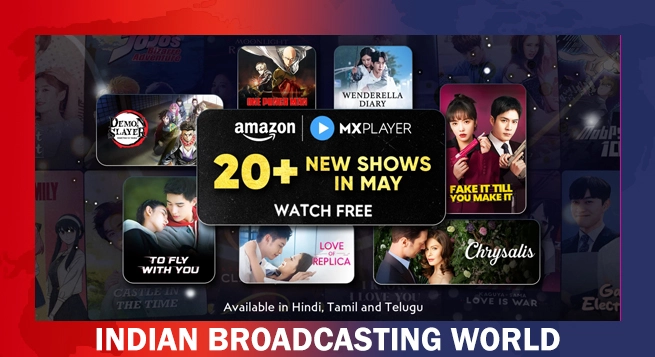 Amazon MX Player adds 20+ dubbed international titles
Amazon MX Player adds 20+ dubbed international titles 


